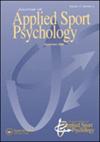职业培训和发展:道德、胜任和可持续运动心理学的基石
IF 3.2
2区 心理学
Q2 HOSPITALITY, LEISURE, SPORT & TOURISM
引用次数: 7
摘要
为了确保公共安全、注意义务和专业进步,学者们需要考虑运动心理学从业者(SPPs)的能力、道德实践和福祉。尽管运动心理学作为一门专业在不断发展,但学者们主要关注的是如何开展应用运动心理学,而专业的形成、发展、成熟以及spp的幸福感等问题却很少得到关注。然而,为了维护这一领域的未来,我们必须更好地了解spp作为个人和专业人士是如何发展的,可能影响他们发展的背景因素,以及培训和监督如何有助于专业人士的经验和发展。在这篇特邀文章中,我们回顾了关于spp专业发展的“我们所知道的”和“我们需要知道的”。在这样做的过程中,我们希望向读者介绍这一领域的关键发展,同时提出一种有助于讨论和未来行动的评论。概要:一个旨在成长和发展的领域必须了解道德和有能力的专业人士的发展。为了帮助理解这一点,我们提供了一个关于我们所知道的和我们需要知道的关于运动心理学专业人员发展的概述。对实践的启示spp需要将他们的注意力集中在他们作为个人和专业人士的发展上,以发展他们的能力。spp可能需要将他们的身份与他们所做的事情结合起来,以促进丰富、可持续、有能力、有道德和有效的实践。研究生和培训项目的主管应该意识到从业者的发展过程以及影响spp的因素。那些领先的培训项目可以在其课程中采用发展方法,优先帮助受训者将他们的个人信仰和专业理念融入到他们的服务中。本文章由计算机程序翻译,如有差异,请以英文原文为准。
Professional training and development: The bedrock of ethical, competent, and sustainable sport psychology
Abstract To ensure public safety, duty of care, and professional advancement, scholars need to consider the competence, ethical practice, and well-being of sport psychology practitioners (SPPs). Despite the growth of sport psychology as a profession, scholars have predominantly focused on how to do applied sport psychology, with issues of professional formation, development, maturation, and SPPs’ well-being receiving limited attention. Yet, to safeguard the future of the field, we must better understand how SPPs develop as individuals and as professionals, the contextual factors that may affect their development, and how training and supervision may contribute to professionals’ experiences and development. In this invited article, we review “what we know” and “what we need to know” regarding the professional development of SPPs. In doing so, we hope to inform the reader on the critical developments in this area while presenting a commentary that facilitates discourse and future action. Lay summary: A field that aims to grow and evolve must understand the development of ethical and competent professionals. To aid in this understanding, we provide an overview of what we know and what we need to know about the development of sport psychology professionals. IMPLICATIONS FOR PRACTICE SPPs need to focus their attention on the development of themselves as persons and professionals regarding their competence development. SPPs may need to integrate who they are with what they do to promote an enriching, sustainable, competent, ethical, and effective practice. Supervisors on graduate and training programs should be aware of practitioner developmental processes and the factors that influence this for SPPs. Those leading training programs might adopt a developmental approach within their curricula, with priority given to assisting trainees to integrate their personal beliefs and professional philosophy into their service delivery.
求助全文
通过发布文献求助,成功后即可免费获取论文全文。
去求助
来源期刊
CiteScore
6.90
自引率
9.40%
发文量
39
审稿时长
>12 weeks
期刊介绍:
The Journal of Applied Sport Psychology (JASP) is a refereed journal designed to significantly advance thought, theory, and research on applied aspects of sport and exercise psychology. Submissions such as experimental studies, qualitative research, correlational studies, case studies, position papers, critical reviews, theoretical developments specific to applied research conducted in sport and/or exercise settings, or having significant applied implications to sport and exercise, are appropriate content for the JASP. Please see the recent Editorial for further details on the aims and scope of the journal. JASP is a non-proprietary journal that is an official publication of the Association for Applied Sport Psychology (AASP). The purpose of AASP is to promote the development of psychological theory, research, and intervention strategies in sport and exercise psychology. The Journal is a direct benefit of membership in AASP and is received by its student and professional members. The publisher of the JASP is Taylor and Francis, Inc. of Philadelphia, PA.

 求助内容:
求助内容: 应助结果提醒方式:
应助结果提醒方式:


